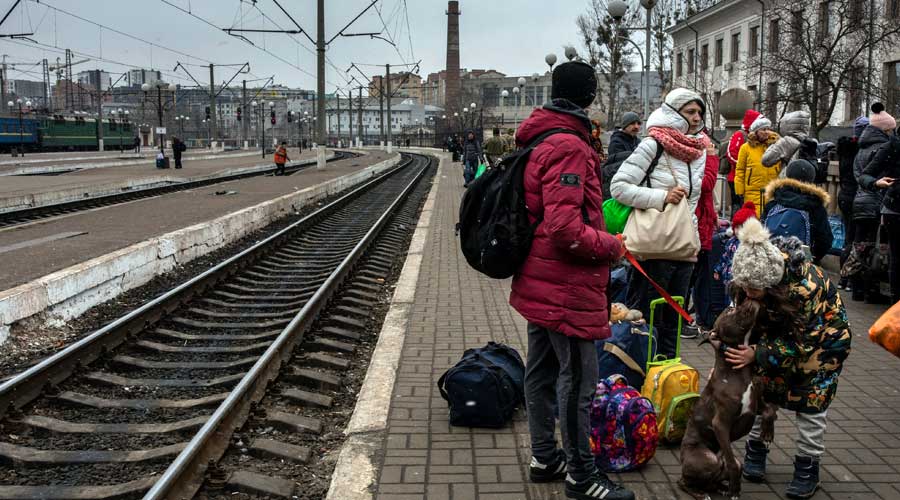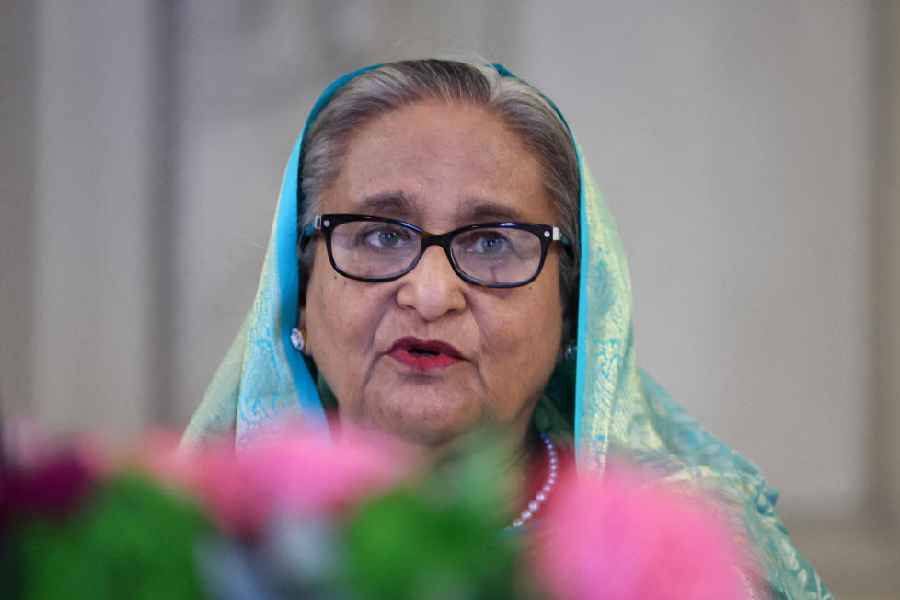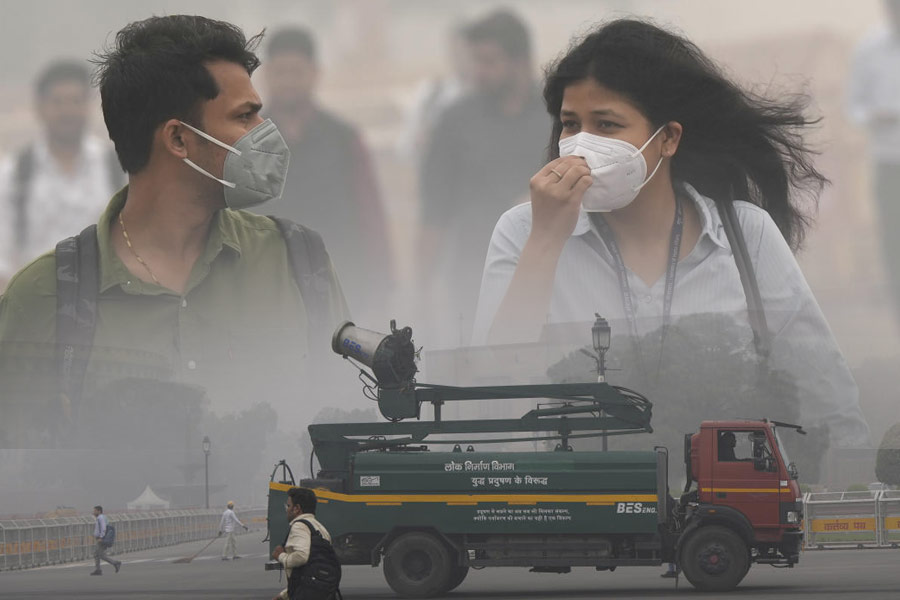Passengers streaming off the train from Kharkiv looked shellshocked, their faces drawn with tiredness. They clutched children with big, staring eyes.
“From Kharkiv,” said Olena Tuliakova, dragging a wheeled suitcase and holding her 3-year-old son, Ilya, by the hand. “I left my parents there,” she added, breaking into tears. She said she planned to travel across Europe to Spain, where her husband was working. She had taped a label to Ilya’s jacket with his name and the family’s phone numbers in case he got lost in the crush or worse.
Kharkiv is close to the border with Russia in northeastern Ukraine, and as one of the first targets of the Russian invading forces, it has come under some of the heaviest bombardment of the war so far. President Volodymyr Zelensky awarded the city heroic status after it sustained barrages of rockets and airstrikes in the last few days.
“We spent seven days in the subway,” said Karina Chikharina, 23, a language teacher at the National Pedagogical University in Kharkiv. “We left because it was unbearable. When you cannot go to the shops, people have started to run out of food.” She said she had sheltered with her mother and grandmother in a subway station.
Men of fighting age are not allowed to leave Ukraine, so Chikharina’s father and boyfriend stayed behind. Her boyfriend’s father drove them to the train station.
“Most parts of the city centre were destroyed,” she said, describing the journey. “There were a lot of cars, and everyone was trying to get to the station and caused traffic jams. People started leaving their cars and walking.”











